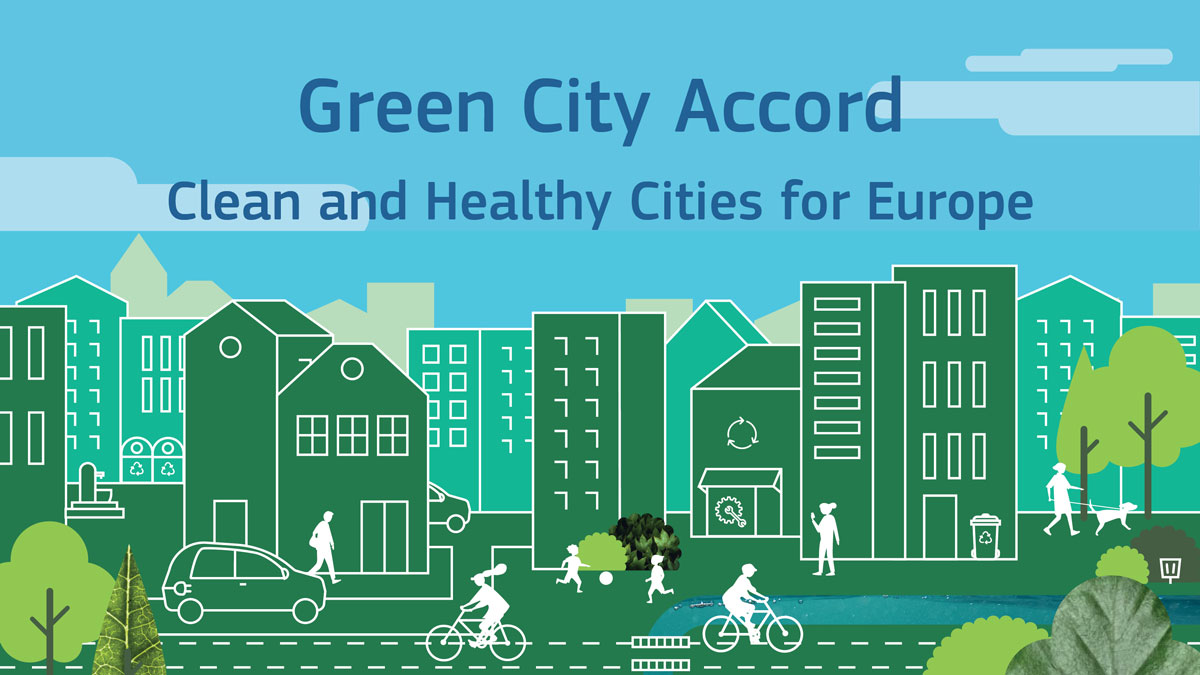More than 50 European Cities Signed the Green City Accord
More than 50 cities have signed the Green City Accord before the end of July. This agreement sees local authorities committing to achieve ambitious environmental goals by 2030 on air, water, nature and biodiversity, circular economy and waste, and noise. From Romania 4 cities – Alba-Iulia, Bistrita, Cluj-Napoca and Tulcea, will benefit from financial assistance to become greener, cleaner, and healthier.
The Green City Accord is a movement of European mayors committed to making cities cleaner and healthier. It aims to improve the quality of life for all Europeans and accelerate the implementation of relevant EU environmental laws. By signing the Accord, cities commit to addressing five areas of environmental management: air, water, nature and biodiversity, circular economy and waste, and noise.
Today cities across the European Union face many challenges. Air pollution is a serious problem posing a real risk to health, noise pollution is on the increase, urban sprawl is affecting the availability of green spaces, while the generation of waste continues to have an impact on the local environment.
But cities can also be leaders in environmental protection and can play an important role in improving air and water quality, in enhancing biodiversity protection, in tackling noise pollution, and in moving towards a more sustainable, circular economy.
To celebrate the involvement of a growing number of cities that form part of the Green City Accord community, a high-level signatory online ceremony will take place on 22 September 2021.
Mayors, local leaders, and stakeholders will join the European Commissioner for the Environment, Oceans and Fisheries Virginijus Sinkevičius in a unique opportunity to discuss the Green City Accord and their environmental priorities.
Major goals
In joining the Accord, mayors agree to taking further action to achieve the following goals by 2030:
- Significant improvement in air quality in cities, moving closer to respecting the World Health Organization’s Air Quality Guidelines, while ending exceedances of EU air quality standards as soon as possible.
- Important progress in improving the quality of water bodies and the efficiency of water use.
- Considerable progress in conserving and enhancing urban biodiversity, including through an increase in the extent and quality of green areas in cities, and by halting the loss of and restoring urban ecosystems.
- Advance towards the circular economy by securing a significant improvement in the management of household municipal waste, an important reduction in waste generation and landfilling, and a substantial increase in re-use, repair, and recycling.
- Significant reduction in noise pollution, moving closer to the levels recommended by the World Health Organization.
The Benefits
- Acquire Europe-wide visibility in recognition of your city’s environmental actions and achievements.
- Contribute to shaping EU environment policy and become part of a community of like-minded cities driving the transition towards a clean and healthy Europe.
- Increase your transparency, accountability, and credibility vis-à-vis the local community.
- Gain access to information concerning EU funding opportunities.
- Participate in networking events, avail of capacity-building opportunities.
- Receive tailored guidance and support via a dedicated helpdesk.
- Benchmark your city achievements against progress in other cities.
The Green City Accord recognises cities as key partners in the transition to a more sustainable Europe. Mayors across the EU are invited to join this new initiative and commit to taking ambitious action to make their cities cleaner and healthier by 2030. Signatory cities will gain access to capacity-building and networking opportunities, expert advice via a dedicated helpdesk, and international visibility for their environmental efforts.







